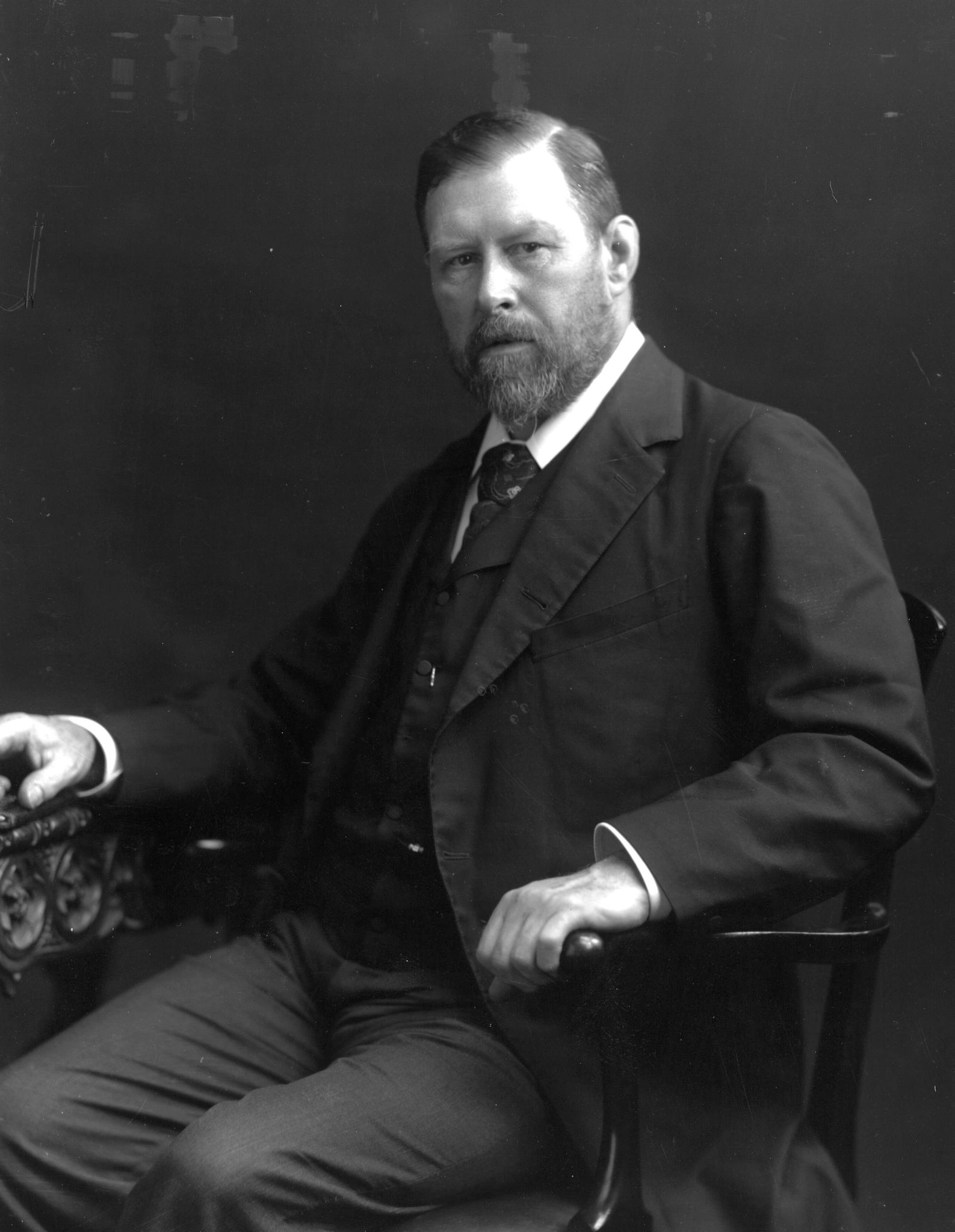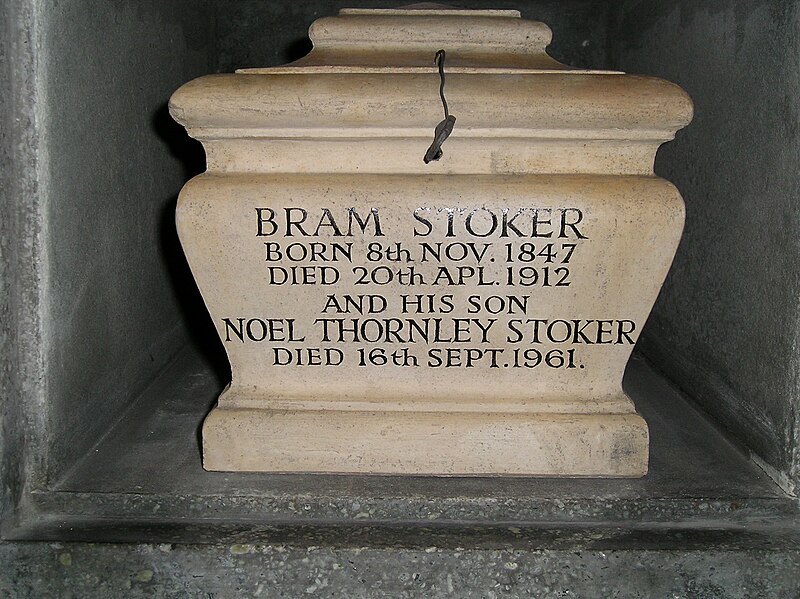
Bram Stoker died on 20th April, 1912. To mark the centenary of his becoming undead (chortle) Radio 4 Extra is broadcasting readings of five of his stories. Two are familiar to me - 'The Squaw' and 'The Secret of the Growing Gold'. Three other stories I don't know - they are 'The Coming of Abel Behenna', 'The Dream In the Dead House', and 'A Dream of Red Hands'. He liked his dreams, obviously. Anyway, the reader is Dyfed Thomas, who's rather good at the old Celtic spookery.

Stoker was a prolific writer, but will inevitably be remembered for Dracula - not least in a thousand of next week's pub quizzes, I daresay. Is it a good thing for a writer to be known only for one of his/her many books? Well, given that most writers are simply not known to the general public for anything, I'd say Stoker was a winner. To have created a story that has that instant recognition factor over 100 years later is a remarkable achievement. While Stoker was not renowned for his brilliant prose style, many a more elegant and thoughtful writer of his day is now forgotten, their finest novels or short stories less than footnotes in literary history.
Anyway, I'll be raising a glass of something suitably red and sticky to Bram Stoker next Friday. Yes, he was a 'one hit wonder', but it's given to few to have even that one hit. By a combination of luck and skill he caught something of the essence of his time, which made Dracula a bestseller, but also created something timeless in its appeal. And if Stoker's vampire count was created from second- or third-hand materials, well, most fictional characters are. And perhaps it's apt that the origins of Dracula lie amid little-known volumes on Victorian library shelves, as he was a creature of dust and shadows.




No comments:
Post a Comment